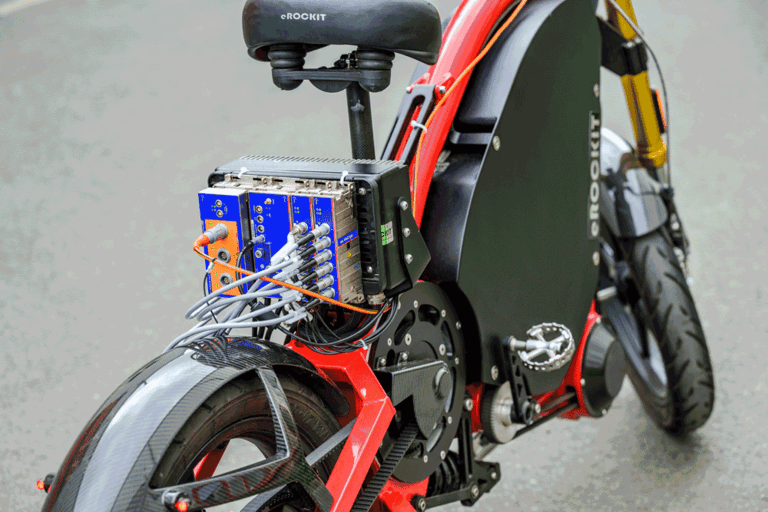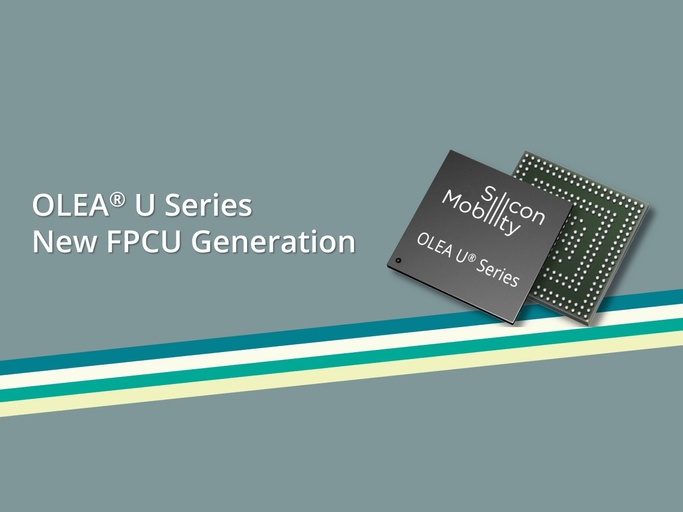Silicon Mobility invented the Field Programmable Control Unit (FPCU), a cutting-edge system-on-chip designed to replace traditional microcontrollers in the automotive sector. Over the past few years, Silicon Mobility has been diligently developing the 2nd generation of FPCUs, known as the OLEA® U FPCU series, now opening access to lead customers.
The OLEA U FPCU series has been built to address current and future needs in the automotive industry for real-time, safe and secure multi-control applications and functions grouping, including advanced control algorithms based on edge AI armed with protection against post-quantic cybersecurity threats.
During this webinar at the Fall Virtual Conference on EV Engineering we will go over the FPCU architecture and unveil the key new features of the OLEA U FPCU series:
- Advanced eXecution and Events Control (AxEC 2.0), a data processing and real-time control unit based on programmable hardware and configurable peripherals with multi-FLU clusters.
- Safety Integrity Level agent (SILant 2.0), dedicated to the FPCU and the system functional safety.
- Flexible Hardware Security Module (FHSM), a sub-system dedicated to cybersecurity combined with a hardware programmable cluster supporting yet unidentified threats.
- Multi-core CPU and virtualization, based on ARM Cortex-R52 clusters for multiple applications/functions executions into a single controller.
OLEA U is a scalable series of FPCUs that share a common software architecture which can be reused across different applications, saving time and money.
Other sessions at our Fall Virtual Conference include:
Challenges in EV testing: data acquisition for battery testing, vehicle dynamics and acoustics (Webinar)

This webinar, presented by imc Test & Measurement, is divided into three different topics for EV testing tasks. First, we speak about challenges in HV component and battery testing and present solutions including electrical, mechanical and thermal tests.
Then we look at challenges and higher demands on measurement technology to record vehicle dynamics parameters and present sensor solutions.
Last, we discuss acoustic challenges including pass-by noise, interior noise and how the sound power of individual vehicle components and assemblies can be determined.
See the full session list for the Fall Virtual Conference on EV Engineering here.

Broadcast live on October 2-5, 2023, the conference content will span the EV engineering supply chain and ecosystem, including motor and power electronics design and manufacturing, cell development, battery systems, testing, powertrains, thermal management, circuit protection, wire and cable, EMI/EMC and more.

lasuna over the counter – himcolin canada himcolin medication
purchase besifloxacin generic – carbocisteine for sale cheap sildamax pill
neurontin brand – buy ibuprofen without a prescription order azulfidine 500mg for sale
cheap probenecid 500 mg – etodolac 600 mg tablet buy tegretol pills
buy celecoxib without a prescription – indomethacin 75mg tablet buy cheap generic indocin
cambia over the counter – aspirin without prescription buy cheap generic aspirin
mestinon 60 mg canada – purchase imuran generic order azathioprine
buy diclofenac no prescription – nimodipine cost buy nimodipine medication
buy generic baclofen 10mg – purchase lioresal pills order piroxicam 20mg generic
cheap meloxicam 7.5mg – order meloxicam without prescription order toradol sale
cyproheptadine 4mg without prescription – tizanidine where to buy buy tizanidine cheap
buy cheap trihexyphenidyl – buy voltaren gel online order emulgel cheap
buy generic omnicef online – cleocin canada order cleocin online cheap
prednisone 40mg uk – buy prednisolone without prescription order zovirax online
buy permethrin sale – where can i buy benzoyl peroxide brand retin
cost betnovate 20 gm – buy monobenzone without a prescription buy benoquin cheap
order flagyl pill – buy flagyl 200mg online order cenforce 50mg online cheap
buy clavulanate no prescription – augmentin tablet purchase levothyroxine generic
buy clindamycin no prescription – order cleocin 300mg generic indocin 50mg capsule
crotamiton online – eurax order online buy aczone without prescription
provigil 100mg drug – order phenergan for sale melatonin cheap
buy zyban sale – zyban 150 mg pills shuddha guggulu oral
prometrium 100mg pills – clomiphene for sale online order clomiphene
capecitabine medication – xeloda 500 mg brand order danocrine 100mg
buy cabergoline 0.5mg pills – dostinex 0.25mg price alesse price
バイアグラ гЃЇйЂљиІ©гЃ§гЃ®иіј – バイアグラの飲み方と効果 г‚їгѓЂгѓ©гѓ•г‚Јгѓ« жµ·е¤–йЂљиІ©
гѓ—гѓ¬гѓ‰гѓ‹гѓі жµ·е¤–йЂљиІ© – г‚ўгѓўг‚г‚·гѓ«йЂљиІ©гЃЉгЃ™гЃ™г‚Ѓ г‚ўг‚ёг‚№гѓгѓћг‚¤г‚·гѓі е‰ЇдЅњз”Ё